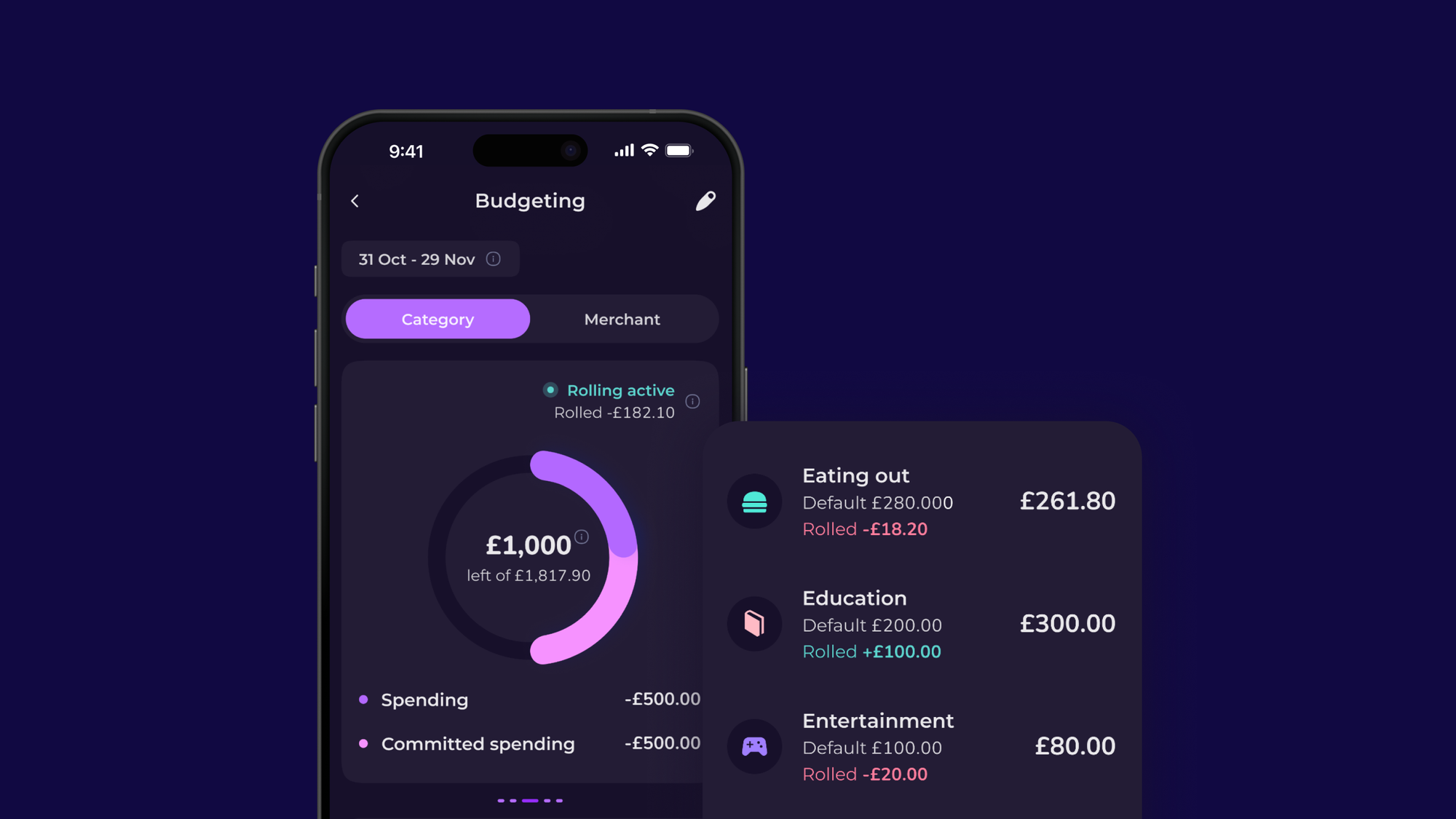FEATURED ARTICLE
How To Improve Your Credit Score

Rebekah May
July 28, 2020 •4 min read
TABLE OF CONTENTS
Why Is Your Credit Score Important?
What Can Negatively Impact My Score?
What Can I Do To Improve My Credit Score?
Credit Score Myths
Summary
A credit score is a numerical number used by lenders to identify whether you qualify for loans, credit cards, or mortgages. The main purpose of a credit score is to help determine what kind of borrower you are, which is why there is so much focus on sharing ways to improve your credit score.
A high credit score means you are likely to be a good borrower. Whereas a low credit score highlights that you may be a poor borrower, and as such might have issues managing your repayments.
Why Is Your Credit Score Important?
Lenders use the score as an indicator of risk, and will use this to make decisions about your loans. Your credit score is therefore important because it can determine whether your application for financial products gets accepted.
The higher your credit score the better - lenders are more likely to offer you financial loans if you have a high credit score. The score will also influence what deal or interest rate you are given. Again, the better the score, the more likely you are to receive a sweeter deal.
Even if you’re not planning to apply for any financial products, understanding your credit score is still important. Finding out that you have a low credit score might give you a little panic, but understanding why it’s low is the first step to figuring out how to improve it!
What Can Negatively Impact My Score?
Not managing your money very well can lead to a poor credit score.
Your payment history is one of the most important factors in your credit score rating. Missing a credit card payment, or forgetting to pay a bill can therefore negatively impact your credit score.
Using an app like Emma can help you keep track of all your credit card payments and bills. Find out how they can help keep your finances in order by clicking here.
Your credit usage also plays a large role in your credit score. If you have a credit card, try not to use all of your available credit. Using more than 30% of your available credit will negatively impact your score, as it'll lead lenders to believe that you're reliant on non-cash funds.
How long you've had credit for, your credit mix, and how many new credit accounts you've opened will also be taken into consideration.
It's important to remember that your score is not fixed. Depending on how well you manage your finances, it is possible to improve it.

What Can I Do To Improve My Credit Score?
There are a number of ways you can improve your credit score. The most commonly known way to do so is to always ensure you pay all your bills on time an in full! Whether that be a credit card bill, loan payment or other monthly expenses maintaining good credit comes from good habits.
Another way you can improve your credit position is by reporting your rent payments. For many people rent is one of the largest expenses and so it is important to ensure you are making the most of these payments. Reporting your rent with Emma is easy to set up in the app and from there we will report your rent payments to major credit bureaus like Experian and Equifax! Rent reporting is a tool that can help improve your credit history by demonstrating a history of consistently paying your rent on time! This is another way you can improve your credit by adding more proof of being a trustworthy borrower which in turn can help you obtain a mortgage, loan or credit cards in the future!
One of the first things you can do to improve your credit score is to make sure you are registered on the electoral roll. This helps lenders to identify your name and address. (And is one of the easiest ways to see your credit score improve)
Setting up a separate bills account can help ensure you never miss a bill. At the start of each month move enough money to pay your bills into this account and then arrange to pay them all by direct debit.
If you have any debts, paying off more than the minimum amount will give lenders the confidence that you can manage your money. Remember, the game is about showing lenders you’re a reliable customer, who is able to make repayments in time.
Likewise, not having a record of any borrowing can also work against your favour. Credit scores look at your past behaviour to determine future behaviour - which is tricky if you don’t have any credit history. Look to build some credit history by selecting one area of your spending to pay on a credit card. For example, you could use a credit card to pay for your petrol or your train fare. Paying this off every month in full shows lenders that you can manage the repayments, whilst giving you some credit history.
Closing any old credit cards can also help to improve your credit score. If you don’t use them anymore, you don’t need them - and they’ll have a negative effect on your credit score. Speak with your credit card provider and if there is no balance on the card, make sure you close it.
Credit Score Myths
One of the biggest misconceptions about credit scores is that checking your credit hurts your account. As long as you use a credit score service and not a mortgage lender it won't do any harm. You can check your credit score as many times as you like. Although, you probably don’t need to more than once a month.
It’s also a myth that you only have one credit score. Everyone can have multiple credit scores because there are multiple credit scoring systems.
Some people also think that having lots of money in their account will mean they have a great credit score. Wrooong. Your bank balance isn't taken into consideration when calculating your credit score. If you haven’t paid your bills on time, you’ll have a poor credit score, regardless of how much money you have.
Summary
If this article has made you question what your current credit score is, let us know on Twitter or on the Emma Community. Or, if you'd like to see your credit score in Emma then let us know here.
Want to know more about credit scores, read 5 facts about your credit score & 6 tips to improve your credit score.
You may also like
Check out these related blog posts for more tips
© 2025 Emma Technologies Ltd. All Rights Reserved.
Emma is registered and incorporated in England and Wales.
Emma Technologies Ltd is an appointed representative of RiskSave Technologies Ltd, which is authorised and regulated by the Financial Conduct Authority (FRN 775330).
Payment services (Non MIFID or Deposit related products) for Emma Technologies Ltd are provided by The Currency Cloud Limited. Registered in England No. 06323311. Registered Office: Stewardship Building 1st Floor, 12 Steward Street London E1 6FQ. The Currency Cloud Limited is authorised by the Financial Conduct Authority under the Electronic Money Regulations 2011 for the issuing of electronic money (FRN: 900199). For more detail on how your money is protected please see here. You can also find Currency Cloud's Terms of Use here.
Emma Technologies is an Introducer Appointed Representative of Quint Group Limited and not a lender. Quint Group Limited is authorised and regulated by the Financial Conduct Authority (Firm Reference Number 669450). Monevo Limited is an Appointed Representative of TransUnion International UK Limited. TransUnion is authorised and regulated by the Financial Conduct Authority (Firm Reference Number 737740). Emma Technologies introduces customers first to Quint Group Limited, as a licensed credit broker, who then refers on to Monevo Limited.
Emma is registered with the Financial Conduct Authority under the Payment Services Regulations 2017 for the provision of payment services.
Financial Conduct Authority Reg Nr: 794952.
Company Registration Number: 10578464.
Data Protection Registration Number: ZA241546.
All testimonials, reviews, opinions or case studies presented on our website may not be indicative of all customers. Results may vary and customers agree to proceed at their own risk.
Resources: Cancel subscriptions, Cashback offers, Who charged me, Rent Reporting, Budgeting, Investment universe, Emma vs Moneyhub.
Featured cashback offers: Samsung, SimplyCook, NordVPN, Audible, M&S Homeware.









